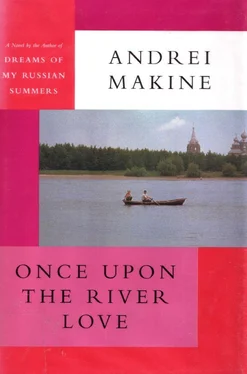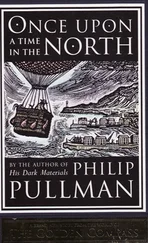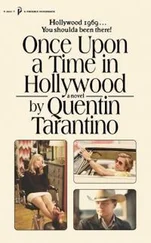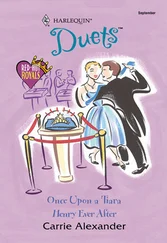For us the German that we learned at school had no link with the Western World of our dreams; it was the language of the enemy, a useful instrument in case of war: that is all it was. The language of the Americans was repugnant to us. The children of the local Party elite mouthed it to a greater or lesser extent. They were all even put into a special group created for students of English. Proletarians, on the other hand, had to learn the language of the enemy…
No, for us the only real language of the Western World was Belmondo's. Seeing his films ten, fifteen, twenty times over, we learned to make out on his lips the inaudible traces of those phantom words eliminated by the dubbing. A little trembling at the corners of his mouth when the sentence in Russian was already completed, a swift rounding of his lips, stresses that we guessed were even…
Sometimes Olga read to us in French. Little by little the phantom phrases showed through. Belmondo was beginning to speak to us in his mother tongue. Our desire to respond to him was such that French seeped into us by impregnation, without grammar or explanation. We copied its sounds, like parrots at first, then like children. Besides, thanks to the films, we had been speaking it before we ever heard it. Our lips, imitating the movements observed on Belmondo's, repeated, all unaided, the Unes that Olga read out before the open window in the clear soft evening:
"Impossible union
Of souls through the body …"
In these verses of a poet of long ago all our youthful dreams found vivid expression…
One day Utkin spoke to Olga about English. She gave him an aristocratic smile, the corners of her mouth a little tensed: "English, my dear friends, is nothing other than bastardized French. If I remember correctly, until the seventeenth century French was the official language of the English. As for the Americans, let us not speak of them. They contrive to express the few ideas they have left entirely through the most basic interjections."
Her exegesis delighted us. So in their ignorance, what the little apparatchiks were studying was a vile surrogate for Belmondo's language! And it was, furthermore, entirely replaceable by a series of primitive gestures and interjections. Utkin was the one who derived the greatest satisfaction from this explanation. The Americans were his pet hate. He could not forgive them for the extermination of the Indians. In his perception the North American Indians were none other than our distant Siberian ancestors who had long ago crossed the Bering Strait and settled all over the great prairies of America. "They are our very close brothers," he would often say He envisaged a military alliance with the Indians against the Americans. And when the fighting was over, New York must be razed to the ground and the lands annexed by the whites returned to the bison and the Indians…
Belmondo departed. The great portrait of him beside the Red October cinema disappeared, making way for various glum faces from a film about the civil war. But the West was still there among us. We sensed its presence in the spring air; in the transparency of the wind, in which we sometimes detected the piquant tang of the ocean; in people's relaxed expressions.
And while the three of us, in love with the West, sought out its secret essence in books and in the music of its language, there were other devotees, who discovered it in more tangible portents. The stunning coup de théâtre pulled off by the school headmistress, for example.
This was the woman who, according to rumors as persistent as they were improbable, indulged in sexual orgies on narrow berths in the cabins of the big trucks that transported vast cargoes of timber. A woman who was forever muffled up in a shawl; who wore a jacket and a skirt of very thick wool, as stiff and as solid as that used for carpets; her feet shod in great fur boots that revealed only a couple of inches of her calves, which were further protected by knitted leggings. A woman, in a word, whose body was inaccessible, unimaginable, nonexistent. And whose face was the face of a faded woman, reminiscent of a padlocked door that no one would ever have wanted to open in any case… And, suddenly, this coup de theatre!
On that day in May we saw an extraordinary car pull up in an alleyway that ran beside the school building in Nerlug. A foreign make such as we would come across only in films about the horrors of capitalism in its death throes. And in those of Belmondo, of course… We already knew that by means of astute bartering it was possible to get yourself one of these cars in the Far East from the Japanese. But it was the first time we had seen one "in the flesh."
It was certainly not new. It must have been sprayed and resprayed, repaired several times, tampered with, perhaps. Its license plate looked like that of any old truck. But what did we care? What counted was its noble profile, its streamlined silhouette, its unfamiliarity. In a word, its Western air.
It all happened very quickly. The passersby and we students did not even have time to crowd around the beautiful stranger. Its door slammed; and a tall, well-built man, wearing the uniform of an officer in the merchant marine, emerged and took a few steps, while keeping his eye on the school gate. Everyone followed his gaze.
A woman came down the flight of steps. The headmistress! Yes, it was she… We instantly forgot about the car. For the woman who walked over to the captain was very beautiful. We saw her legs revealed up to the knee, long, svelte, the light shining off her black stockings. We could even see her knees, which were elongated, elegant and delicate. And furthermore she had breasts and hips. Her breasts were slightly uplifted by the fine lace that framed the very modest décolletage of her dress. Her hips filled the fine material with their rhythmic movement. She was quite simply a beautiful woman, confident in her gestures, smiling as she went to meet the man waiting for her. Her swept-up hair revealed the pretty curve of her neck; on her ears sparkled pendants decorated with amber. And her face, in its fresh and open candor, was like a bouquet of wildflowers.
At the moment of their meeting, of course, all we saw was this bouquet. The other features of the transfigured headmistress were imprinted in our eyes but examined only later, with the aid of our collective memory. The coup de theatre was too rapid.
She crossed the spring street. The captain took several steps toward her, with a somewhat mysterious smile hovering on his face. Then, with the flourish of a conjurer, he removed his fine blue nautical cap and bowed to the woman who stood in front of him. The crowd held its breath… The captain kissed the headmistress on the cheek…
So they did know how to do all that! She to dress elegantly, groom her hair, be lively, desirable; he to master that handsome machine, open the door for a lady with a courteous remark. And, above all, to take off Belmondo style!
Yes, he did it for us, driving through the red light, defying the gray uniforms, chewing up the streets of Nerlug with his four fearsome wheels. The roar of the beautiful stranger deafened us; its speed distorted all normal perspectives – trees and houses seemed to be hurtling toward us. And the car, with squealing tires, was already turning into Lenin Avenue. At the open window we saw a flash of our headmistress's pink scarf fluttering in the wind. Like a gesture of farewell.
A week later the city discovered the key to the mystery… On the day of the last snowstorm the headmistress had decided to go and see this film, at the very first showing of the day. So as to be sure of not being surprised there by her pupils. Everyone had been talking about this Belmondo for months. But she had not cared to stoop to that type of mass culture. However, the temptation was great. The headmistress must have sensed a wind of change blowing in the streets of Nerlug…
Читать дальше












